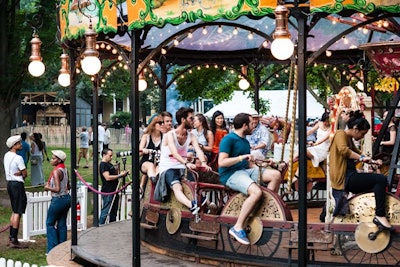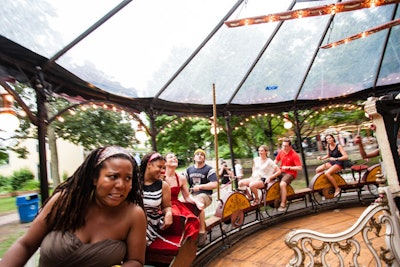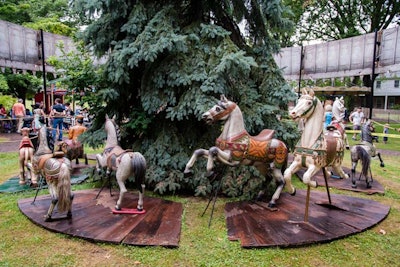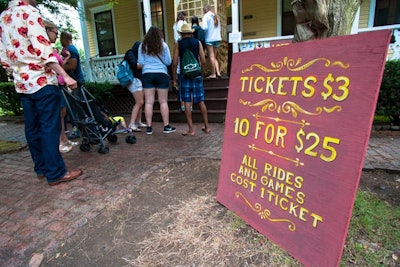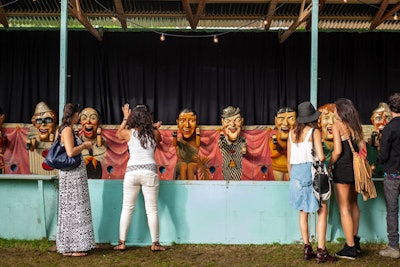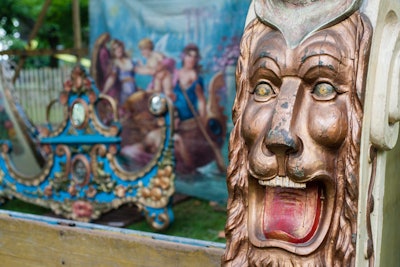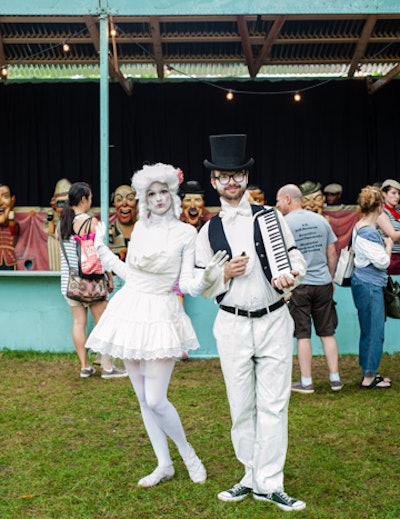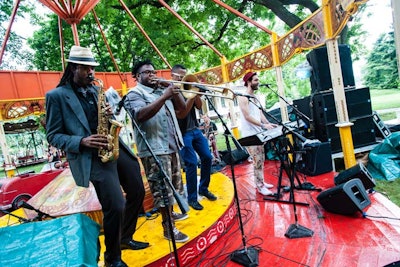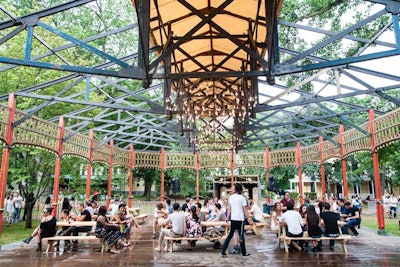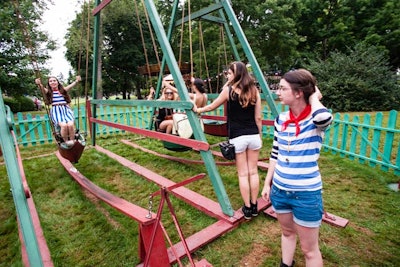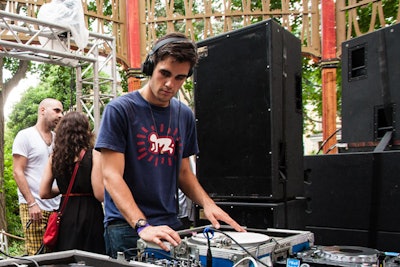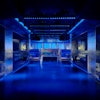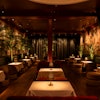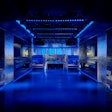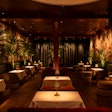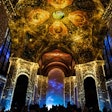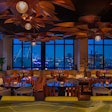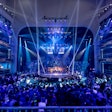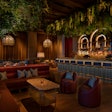In a city where high tech and high speed dominate, a slice of life straight out of a Fellini film made its Stateside debut on Governors Island over the weekend. Coinciding with Bastille Day, Fête Paradiso—billed as the world's first traveling festival of vintage carnival rides and carousels—brought with it, for the very first time, the authentic rides and amusements enjoyed by carnivalgoers in France a century ago.
To preserve the bygone charm and set it in a modern era, Régis Masclet and Francis Staub, two avid Frenchmen and collectors of fairground arts, enlisted the help of several partners to stage the monthlong event with their antiques. This included Paris-based Tristan Duval, head of Community, a French organization dedicated to promoting tourism and the arts, and Christopher Wangro, the New York-based president of event production company Zaragunda and the event’s executive producer. Leslie Koch, president of the Trust for Governors Island, also contributed.
"Nolan Park is such a beautiful, shady oasis, and Governors Island is shockingly near and amazingly far away from Manhattan and Brooklyn," Wangro said of the seven-acre space. "What we're trying to do is create another place in another time—so it was a perfect fit."
Working with the city's Department of Buildings and Department of Consumer Affairs, Wangro said that the permitting process was one of two elements that proved most challenging. "These rides and structures are historic, they're mostly all-wood structures," Wangro said. "These sorts of things do not [necessarily] instantly meet contemporary building guidelines."
Fortunately, Wangro's background proved to be an asset for the event. As a former citywide director of special events for the New York City Department of Parks and Recreation, he oversaw many of the city's most high-profile events, including several of Central Park's “mega-events”—Earth Day '90, Paul Simon's 1991 Concert in the Park, and Pavarotti’s 1993 Concert in the Park.
Fête Paradiso runs through September 29, or the full season schedule of Governors Island. And for the monthlong build out, Wangro said the organization, which does not expect to make a profit on the New York fair this year, will not pay any rent to the city—although it is responsible for lawn upkeep and any extended-hour ferries. Planning took about four months.
The other challenge was bringing enough electricity to the island to power the carnival (everything in Europe runs 50 hertz, while in North America it’s 60 hertz). Wangro was able to utilize his other company, GreeNow, which leases generators that run on biodiesel, to run the entire festival in a sustainable manner.
The 15 mechanized and non-mechanized rides are operated by about 30 on-site staffers and a separate production crew (partly made up of stagehands from the Brooklyn Academy of Music, and partly of special craftsmen and engineers), which worked with a team of 10 master craftsmen flown in from France. The majority of the antiques arrived by ocean cargo in nine separate freight containers. Delaying the soft opening by a week was an unexpected French railroad strike, as well as a bilingual construction crew and the occasional oddity, like the need for 1,000 specialty bolts to be shipped in from Belgium.
Although the opening weekend's Parisian Ball featured a rotating bevy of DJs that spun electro-pop, festivalgoers at the event’s general running will be treated to a combination of French cabaret music, French gypsy jazz, and accordion players.
Organizers said other cities around the United States are likely to follow suit. Miami was mentioned as a possible destination during the cold New England months.
